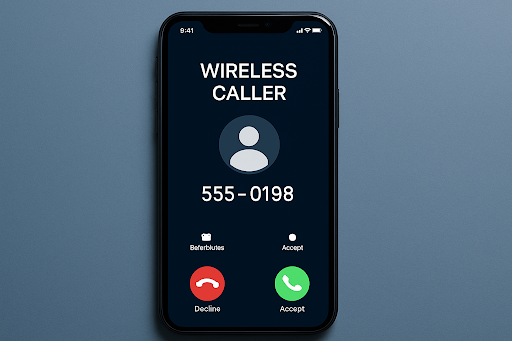
Blockchain tech that is commonly applied to Bitcoin and other cryptocurrencies is now being developed for use in applications beyond just digital currencies. While Bitcoin might be regarded as the first real application, the true potential of blockchains is in building decentralized, secure, and transparent systems. A glance here shows how blockchain innovates industries all over the globe.
Beyond Bitcoin explores the rise of altcoins, blockchain innovations, and how decentralized technologies are shaping the future of finance, security, and digital assets globally.
Finance and Banking
Cross-Border Payments: By removing intermediaries like banks, blockchain presents a faster and more affordable model for cross-border transactions. Ripple, for instance, challenges the very idea of traditional wire transfer services by providing fast payments with low fees.
Decentralized Finance: Financial transactions such as lending, borrowing, and trading are delivered by the blockchain without involving the traditional banking system, which keeps the costs down. Also, it gives more power to users.
Smart Contracts: The contracts performed automatically by the computer in line with the conditions previously established will thus execute the transactions more efficiently and will make them more transparent.
Supply Chain and Logistics
This is changing the whole theme of the industry by amplifying visibility and simplifying movements in the supply chain.
Blocking Provenance Tracking: Real-time tracking of goods will render their actual movements in the supply chain, which is significant to the food and pharmaceutical industries, where the origins of products are essential for safety.
Anti-Fraud Prevention: Movement of products will be tracked in public distributed ledgers to eradicate counterfeits in luxury products, electronics, and the rest.
Cost Minimization: Intermediaries would be eliminated due to blockchain streamlining operations in managing the supply chain and thus bringing down costs.
Healthcare
The influence of blockchain technology in healthcare revolves mainly around two reasons: enhancing data security and ultimately benefiting patient care.
Medical Record Maintenance: Blockchain helps in the secure storage and immutability of records so that patients can have access and control over their own data, which thus becomes necessary for it to be available to health care providers properly and in a timely.
Drug Traceability: Counterfeit medicines are then tracked through the entire life cycle of a pharmaceutical product, from production to delivery of the product to the health facility and patient, thus creating safety and compliance.
Real Estate
Real estate transactions tend to be protracted and intricate; however, some solutions provided by the blockchain can facilitate easier and smoother transaction processes.
Property Transactions: Blockchain can digitize land titles and property records, effectively eliminating the employment of third parties like notaries or title companies. This leads to the efficiency of the transaction process by saving both time and money.
Smart Contracts for Leases: Smart contracts are powered through the blockchain to automate lease agreements with automatic execution of terms, thereby making the rental process easy.
Entertainment and Media
Content Distribution: Blockchain allows the content creator to cut out middlemen in the distribution of the content directly to consumers. This allows the content owner to receive more revenue.
Automated Royalty Payments: Through smart contracts, blockchain automatically pays out to creators whenever the content is consumed, which makes receiving royalties more transparent and efficient.
Voting & Governance
Improvement in democratic processes and governance models that come with the use of blockchain include:
Secure voting systems: These electronic voting systems, powered by blockchai,n are incorruptible and transparent and therefore help in reducing fraud and building trust in the elections. Voters cast votes safely and verified by the blockchain.
Decentralized Autonomous Organizations (DAOs): DAOs are run through smart contracts built on the blockchain and therefore require no leadership in power, as all decisions are made through voting by the members in an overall transparent mechanism.
Insurance
The insurance sector is being improved by blockchain technology with greater efficiency and transparency:
Automated Claims Processing: Smart contracts on blockchains can automate the claims process. This decentralizes the administrative aspects of the insurance business, which enables quicker claims payment and minimizes fraud.
Transparent Underwriting: A secure blockchain would provide an immutable record of an individual’s claims history and thus help improve the accuracy of underwriting and pricing policies.
Intellectual Property and Copyright
Digital Rights Management: The working principle of Beyond Bitcoin would provide creators with a method to register their works on the network, track their use, and be compensated when the content is used. This seals the door against any piracy or unauthorized distribution.
Proof of Ownership: The best way to prove ownership of any given digital creation is via the means of blockchain, be it music, art, or software, to protect those intellectual property rights.
Conclusion
Beyond Bitcoin is more than just a buzzword. It is already changing different industries, from healthcare to voting systems, and changing how businesses will conduct their processes. With technology maturing more, it will only extend the possible disruptions in finance, supply chain management, and real estate. The challenges of scalability, energy consumption, and regulation aside, there are benefits that are undeniably many – decentralization, security, and transparency.
More industries will shift to blockchain; thus, the advent of more digital systems will most likely become safe, efficient, and user-centric. It is technology that will fundamentally transform how we interact with data and conduct business, ushering in a much more decentralized and transparent future.
FAQs
What is Blockchain?
The word ‘blockchain’ comes from its simple definition: It is a decentralized digital ledger meant to record transactions securely across several computers. The records are immutable (i.e., cannot be tampered with) and can guarantee both transparency and security. Originally designed to be used for cryptocurrencies such as Bitcoin, it thus takes on several other implications in different businesses.
Is blockchain secure?
Blockchains are indeed secure. They use cryptographic techniques to validate and record transactions. Once data is entered into a blockchain, it generally cannot be amended or interfered with; having said that, any technology, including blockchain, can be exploited or misused with appropriate skills, especially where user behavior or third-party applications are involved.
How will blockchain change the business world in the future?
The business world is bound to see a revolutionary change up ahead with the emergence of blockchain. From now on, all important business processes will enjoy enhanced transparency, security, and efficiency under the auspices of blockchain. Industries will decentralize, transactions will be faster and cheaper, and in between, you may expect a variety of new business models to emerge- from decentralized finance (DeFi) to decentralized autonomous organizations (DAOs).


